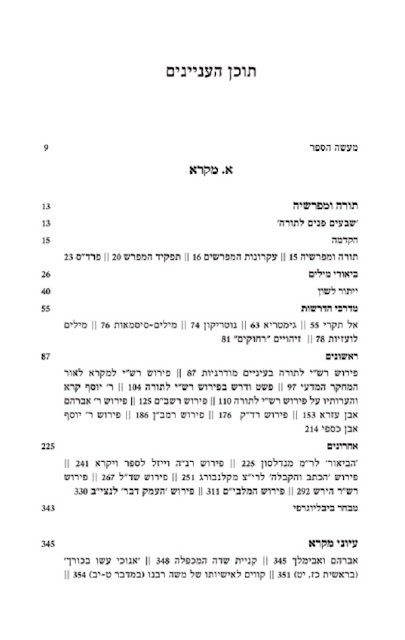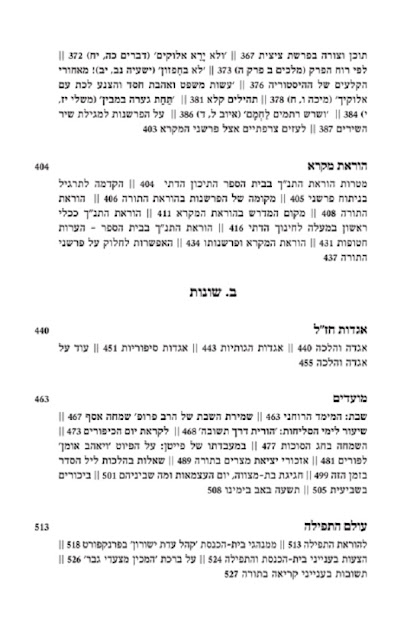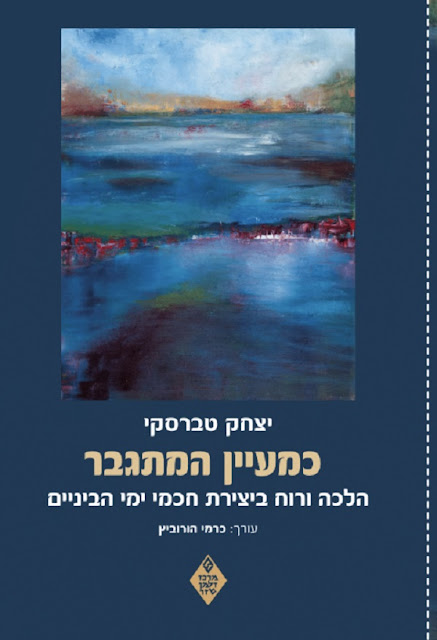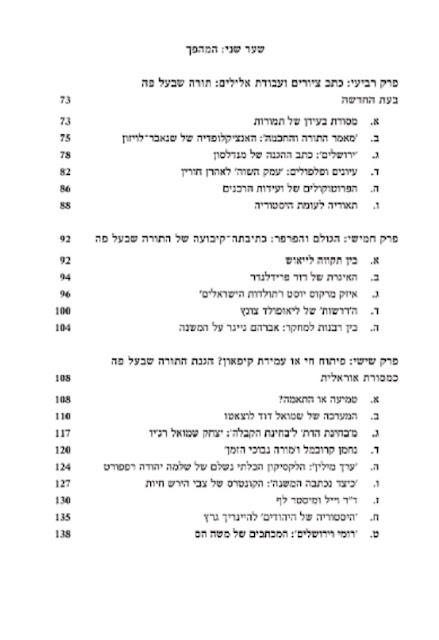Summer 2020 Sale Announcement: Eight New (or newish) book recommendations
Summer 2020 Sale Announcement: Eight New (or newish) book recommendations
By Eliezer Brodt
Normally this time of the year I post to announce book week and to list out many of the seforim and books printed during the year. This year, due to Covid-19, there is no book fair. At this time there is “talk” of holding a fair in a few months, but who knows what the future will bring. Some publishing companies are currently running sales via their websites; others did not. What follows is a partial list of publishers on sale right now: Bialik, Bar-Ilan University Press, Magnes Press, Academy L’Lashon Haivrit, Mechon Shlomo Uman, Zichron Aron, Mechon Yerushalayim (catalog available upon request), and Ahavat Shalom (catalog available upon request). As in previous years I am offering a service, for a small fee to help one purchase seforim or Books from these sales. For more information about this email me at Eliezerbrodt@gmail.com
This post serves a dual purpose; by mentioning and describing a few, new, important works (some are brand new; others are not), the Seforim blog readership is made aware that they are out there. The second purpose of this post is to make particular seforim available for a limited time and at a special price to those interested in purchasing them through me. Part of the proceeds will be going to support the efforts of the Seforim Blog. Contact me at Eliezerbrodt@gmail.com for more information.
The first book I would like to mention is in English, titled Torah & Rationalism, Understanding Torah and the Mesorah – Writings of Rabbi Aaron Chaim Halevi Zimmerman (216 pp.).
This work was compiled and annotated by Rabbi Moshe Landy. It’s very well written and will certainly be enjoyed by readers. Of note is that this work includes his attacks on Chochmat Yisroel in general and specifically on Louis Ginsburg, G. Scholem and Leo Strauss.
Here is the table of contents.
משה ארנד, שבעים פנים לתורה, 747 עמודים
The second work I would like to mention is a collection of Professor Moshe Arend’s writings. Arend was a famous educator at various institutions and universities. He also wrote numerous articles and books, including a critical edition of R’ Yosef Kra on Iyov and a work on Rashi with Nechama Lebowitz (via Open University).
This new work is composed of a few parts (see the table of contents below). The first section is based on Shiurim he gave devoted to outlying the methods of fourteen different Rishonim and Achronim on Chumash. This part is 348 pages long and is a very valuable tool, as he was known as a master educator.
Other sections are devoted to education (including a section on how to properly teach Tanach) Aggadah, articles on Moadim, Teffilah and Minhaghim. It also includes some memoirs of his interesting life, and write ups of some people he knew. The work concludes with some interesting letters. This wide range collection of material was compiled by his son Dr. Aharon Arend and includes a thorough index to easily locate the numerous gems found throughout the book. Some sample pages are available upon request.
Here is the Table of contents and cover.
יצחק טברסקי, כמעיין המתגבר, הלכה ורוח ביצירת חכמי ימי הביניים, עורך: כרמי הורוביץ, מרכז זלמן שזר, 749 עמודים
The third work I would like to mention is the collection of all of Professor Yitzchak (Isadore) Twersky’s thirty-one articles, translated into Hebrew on a wide range of topics. As the original English articles have yet to be collected into one volume, this compilation serves an additional benefit. Many of these articles have been quoted, used and become classics in academic literature, and now for the first time many of them are easily accessible for the Hebrew reader. A PDF of the introduction is available upon request.
Here is the Table of contents and cover.
גנזי הירושלמי, יעקב זוסמן, בהשתתפות בנימין אליצור, בתוספת החיבור, שלמה נאה הערות ללשון קטעי הגניזה של התלמוד הירושלמי, 831 עמודים, בן צבי
The fourth important work I would like to mention is Ginzei HaYerushalmi from Professor Yaakov Sussman. This work collects all of the Yerushalmi manuscript fragments from the Cairo Geniza as well as collections from all over the world. The original plan was to include in this volume, Sussman’s discussions on the Yerushalmi, but due to his health that part of the project was cancelled. A PDF of the introduction and some sample pages are available upon request.
שרגא אברמסון, מחקרים בספרות הגאונים, מגנס, 488 עמודים
The fifth work I would like to mention is a collection of articles by Professor Shraga Abramson. As the abstract of this book states, Abramson was the most important scholar of his time in the field of Geonic literature and the teacher of most of the proceeding generation in this field of study. This book is the third collection of his studies pertaining to the Geonic period. The two previous volumes are considered mandatory for those interested in this formative and fascinating period. The current volume contains studies published in his lifetime but were not included in other compilations, as well as some unpublished studies found in his estate. The articles deal with various aspects of the Geonic literature. A PDF of the Table of contents & introduction are available upon request.
ספר המספיק לעובדי השם לר‘ אברהם בן הרמב“ם, מהדורה שניה מתוקנת, הוצאת אוניברסיטת בר–אילן, 358 עמודים
The sixth important work worth mentioning is the Sefer Hamaspik of R’ Avraham Maimuni, son of the Rambam. This part of the work was first printed in 1989 and is mostly of a Halachic nature, focusing on Tefilah. At the time, critical reviews of the edition noted various issues with the translation from Judeo-Arabic, issues which were addressed in this new, revised edition. At this time, I am not able to weigh in if enough was corrected or not, however I can say the work is very special, unique and is definitely worth one’s time to learn through it.
יעקב זוסמן, תורה שבעל פה פשוטה כמשמעה, כוחו של קוצו של יו“ד, מגנס, 228 עמודים
This essay is one of the most incredible academic works I have ever read. The abstract describes it as follows: It deals with the famous question of the manner in which the Tannaitic and Amoraic literature was passed on, orally or in writing, which is of great importance in determining the basic cultural and historical facts in the world of the Sages and in understanding the development of the Oral Law and in the formation of its literature. In Sussman’s revolutionary study, this complex subject was re-examined based on a thorough and profound study of various Talmudic sources, while comparing them with external, time-based evidence, published for the first time in Talmud Studies in 2004. It is published again in this book, along with detailed indices for source texts and various topics discussed therein.
חנן גפני, מפי סופרים תפיסת התורה שבעל פה בראי המחקר, מרכז זלמן שזר, 342 עמודים
Another slightly older work I would like to mention is Chanan Gafni’s Conception of the Oral Law in Modern Jewish Scholarship. This book continues his previous, excellent work P’shuto Shel Mishna. The detailed table of contents below gives one an idea of the topics dealt with inside. A pdf of the introduction is available upon request.


















6 thoughts on “Summer 2020 Sale Announcement: Eight New (or newish) book recommendations”
It is interesting that you describe Torah and Rationalism as “well written.” Torah and Reason and Torah and Existence are two of the most peculiarly written books I have seen. They almost read like screeds to some invisible group of challengers. They seem to have been dictated or possibly transcribed from conversations and they flow more like an oral discussion than what was intended for a written work. They are edited in such random was and utilize a great deal of colloquial “Yeshivush.” so I do look forward to reading Rav Zimmerman’s work that is more cogent. Did he author this and a student edited or is this a student’s representation of his Rav’s thinkiking?
Dear Geoff
You are a very astute reader. Torah and Reason, and Torah and Existence, were originally articles published in the Jewish Press (1970’s). They were later put together as books – I am sure there was some editing – by Rabbi Zimmerman. The articles were verbally dictated by Rabbi Zimmerman to a student (Professor Joseph Levinson). They were then typed by Rabbi Zimmerman’s daughter and submitted to the Jewish Press. As a student of Rabbi Zimmerman, I witnessed this process.
M Landy
Thank you for the comment and background. I’m looking forward to reading your sefer. Rav Zimmerman is wholly under-appreciated and it’s good to see more of his thoughts being published. I often think of him during the nine days as I was once told a story of him walking into a deli, ordering a fleishig sandwich, zipping through a mesechet shortly thereafter and making a siyum to enjoy his purchase. Apocryphal or not, stories like that aren’t told of to many people.
I am not familiar with the story you wrote, but I will give over to you a similar restaurant story that also illustrates a different generation and different caliber of person. This story was told over to me by a Rabbi Reichman ז”ל (he was a lower grade rebbe at MTJ on the lower east side). Rabbi Reichman’s parents owned a small restaurant on the lower east side. One day Rabbi Zimmerman entered the restaurant and sits down. All of a sudden Rabbi Eli Hazan (?) enters and sits down at Rabbi Zimmerman’s table. They proceed to talk in learning for two hours. Rabbi Hazan leaves, and Rabbi Zimmerman asks for the check and starts to Bench. Rabbi Reichman tells him “you never ordered anything and you did not eat anything!.”
Rabbi Reichman’s reason for telling me this story was that he never witnessed such pure devotion and involvement in learning. The general public usually make ridicule of such stories: “Absent minded professors” or rabbis who are בטלנים. What they are actually seeing is the total involvement in Torah and wisdom, which these unique individuals possessed.
win money no surveys
win money